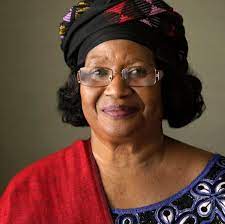Joyce Banda: Malawi’s First Female President.
She became the second female president on the African continent
Joyce Banda become the Malawi’s first female president and left an enduring mark on the country and beyond. Undoubtedly, her journey from humble beginnings to an extraordinary presidency is a testament of resilience.
Joyce Hilda Ntila Banda’s rural upbringing fueled a fierce determination to overcome adversity and led her to become the icon she is today.
Early Life and Rise to Prominence.
Joyce Banda was born on April 12, 1950, in Malemia, Malawi. A poor country with limited educational opportunities. Despite the challenges of her country, she earned a Cambridge School Certificate and achieved two degrees remotely through the internet. A Bachelor of Arts in Early Childhood Education from Columbus University and a Bachelor of Social Studies in Gender Studies from Atlantic International University.
Entrepreneurial Ventures and Advocacy.
Prior to politics, Banda established and managed a range of businesses and organizations, including Ndekani Garments (1985), Akajuwe Enterprises (1992), and Kalingidza Bakery (1995). Her personal triumphs inspired a passion to assist other women in breaking free from financial dependence and escaping cycles of abuse and poverty.
Venturing into politics in 1999, Banda secured a parliamentary seat during Malawi’s third democratic election. She aligned herself with President Bakili Muluzi’s United Democratic Front. Representing the Zomba Malosa constituency. Additionally, her dedication to gender equality and community services led to her appointment as the Minister for Gender and Community Services.
From Grassroots Activism to Governmental Heights.
Before her political career, Banda had already established impactful organizations like the Joyce Banda Foundation, NABW, the Young Women Leaders Network, and the Hunger Project. These endeavors laid the foundation for her unwavering commitment to social justice and women’s rights. Her ascent in the political arena continued as she served as the Minister of Gender, Child Welfare, and Community Services, followed by the Minister of Foreign Affairs from 2006 to 2009. Subsequently, she assumed the role of Vice-President of Malawi from May 2009 to April 2012.
A Presidential Legacy.
Joyce Banda became the president of Malawi on April 7, 2012. This pivotal moment came following the passing of the incumbent president, Bingu wa Mutharika. She became the second female president on the African continent after Liberia’s Ellen Johnson Sirleaf. Throughout her presidency, Banda championed economic reform, expanded healthcare access, and elevated education standards. But also took significant actions to address corruption and improve the country’s financial situation.
She sold off a $15 million presidential jet, cut her own salary by 30%, and dismissed her cabinet because of corruption. Her prudent financial measures played a crucial role in lifting monetary suspensions from Western donors to Malawi and restoring cash injections from the IMF. Her unyielding stance against corruption underscored her commitment to transparent governance.
Empowering Women and Beyond.
Banda’s presidency was marked by her resolute advocacy for women’s empowerment. However, her policies placed a premium on economic inclusivity and gender equality, recognizing the pivotal role women play in advancing societies. And also by prioritizing women’s rights and demonstrating gender equality, Banda exemplified the power of empathetic and progressive leadership.
Even after her presidency, Banda remained a passionate advocate for gender equality, and women empowerment. Her enduring efforts earned her recognition from prestigious institutions, including Forbes and Time magazine.
Joyce Banda’s journey is an inspiring testament to the profound impact of individual dedication in creating transformative change.
